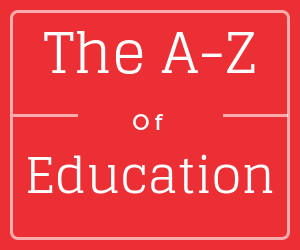Give Teachers a Voice in Education Reform

Many of us may find it odd that many people who are in education leadership have no real experience in the classroom, which is a valid concern. If we thought about other sectors where leaders are present, such as the Supreme Court, we know those who sit on that bench have direct experience in the courtroom. Our leaders in education are making crucial decisions that substantially affect those in the classroom – the teachers and the students. And it’s inside the classroom that the bulk of the work is happening.
Teachers are on the frontline of student interaction and are also held responsible for the success (and failures) that students experience. Teachers have valuable input on what works, what doesn’t, what it’s like to work with families, parents, what it’s like to continuously come up with engaging activities while managing other things, such as behavior, meeting learning outcomes, relationship building, etc. This is the type of input and information that educational leaders should have to make proper, informed decisions.
A teacher wrote an open letter to policymakers in education, investors, and other decision-makers, outlined how being in the classroom, even for a day, can provide so much clarity and direction for the people in these leadership positions.
“Bottom line, I wish you spent more time in the classroom. Because that’s the key—being there to watch how students respond reveals the profound difference between the standard, meat-and-potato curriculum that regularly fills their pails and the harder-to-find great stuff that lights the fire of the lucky few who are taught with it. Then you’d see the massive business opportunity to fill this market void.”
Though this teacher is encouraging our leaders to spend more time in the classroom, it would then follow that seeking out the voice of our teachers in education reform makes a lot of sense. An author, Jim Lobdell, points out in the open letter, “If you had that firsthand experience of this enormously daunting task (teaching), I’m convinced your perspective on how to “disrupt” education would change profoundly. In education, clarity is found in the eyes of students in front of you, not from 30,000 feet”. Why aren’t we looking to seek insight from those who are on the ground, completing the actual work that we measure?
These top-down decisions have not been proven to be successful in the past, but the collective wisdom of teachers can be beneficial to enhance and progress educational reform positively and efficiently.
The Teacher Union Reform Network (TURN), a coalition of about thirty teachers’ union workers, have come up with four beautiful, creative ways to look at education reform that addresses issues at its core, rather than addressing issues at the 30,000-foot view. These pillars are:
- If we want schools to prepare students to be career- and college-ready, thoughtful citizens, and reflective human beings, then schools should be safe, learner-centered, and well-resourced to serve the needs of each student.
- If teachers are the most important in-school determinant of student learning, then teaching must be recognized as a real profession.
- If America needs to tap into the talents of all students, irrespective of their background, then educational excellence must be inclusive, and education redesign must be accompanied by changes in other aspects of students’ lives.
- If all education policy must ultimately be about enhancing opportunities for students to learn, then collective bargaining (and other forms of collaborative decision-making) between teachers and management should always aim to advance student learning.”
These if-then statements are a practical framework for changing our perspectives on educational reform and target the deeper issues that manifest into the barriers we are seeing in our educational system today. Incorporating these pillars into discussions regarding educational reform would be a wise decision for our educational leaders.





